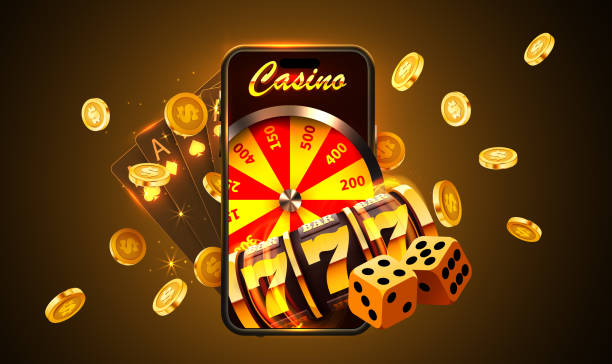
Understanding Regional Trends in Slot Gambling
Slot gambling has evolved significantly over the past few decades, not just in terms of technology but also in terms of regional preferences and player behaviors. Regional Trends in Slot Gambling in Bangladesh https://playerzonebd.com/bonuses is profound, and understanding these nuances can help stakeholders in the gambling industry tailor their offerings to meet the diverse needs of players around the globe. This article explores the various regional trends that define the current state of slot gambling, revealing how different cultures, economic conditions, and technological advancements shape player experiences and preferences.
1. Cultural Influences on Slot Gambling
Culture plays a pivotal role in shaping gambling habits, particularly in how slot machines are perceived and interacted with. In some regions, slot gambling is viewed as a mainstream form of entertainment, while in others, it may be associated with stigma or illegal activity.
For instance, in Western countries such as the United States and Canada, slot gambling is widely accepted and integrated into social activities, with many casinos featuring elaborate themes and offerings that appeal to various demographics. Conversely, in some Asian countries, traditional gambling games such as mahjong remain more popular than slots, which may be seen as too random and reliant on luck.
Additionally, in regions like Scandinavia, there’s a strong focus on responsible gambling, leading to regulatory frameworks that influence how slot machines are designed and marketed. Operators must navigate these cultural attitudes to create a gaming experience that resonates with local players.
2. Economic Factors Shaping Slot Gambling Trends
The economic landscape of a region significantly impacts gambling behaviors. For instance, in affluent areas, players may prefer high-stakes slot machines with bigger payouts, while in less economically developed regions, low-stakes machines might be more popular.
Furthermore, economic downturns can alter the gaming habits of consumers. Research has shown that during times of economic hardship, players may seek out entertainment options that offer the chance to win substantial rewards, leading to increased participation in slot gambling. Casinos and online gaming platforms often respond to these economic trends by adjusting their game offerings and promotional tactics to attract players looking for value and entertainment.
3. Technological Advancements and Their Impact
Technological innovation is another significant driver of change in the slot gambling landscape. The rise of online casinos and mobile gaming has transformed how players engage with slot machines, providing greater accessibility and variety than ever before. In regions where internet connectivity is robust, online slots have seen explosive growth, with players enjoying the convenience of gaming from home or on the go.
Virtual reality (VR) and augmented reality (AR) technologies are also beginning to impact the slot experience. These technologies create immersive environments that enhance gameplay, making slots more engaging. Regions that are quick to adopt such technologies may see a shift in player demographics, attracting younger audiences who are drawn to innovative gaming experiences.

4. Regional Popularity of Slot Themes
Slot themes can vary widely from one region to another, reflecting local customs, folklore, and interests. For example, in the United States, you’ll find a plethora of slots inspired by Hollywood, music, and pop culture icons, appealing to a wide range of players. Meanwhile, in Japan, traditional themes based on anime or folklore could dominate the market.
Understanding regional preferences for themes can enable game developers to create more tailored content. This localization strategy not only increases player engagement but also improves the chances of success for new game launches.
5. Regulatory Environments and Their Consequences
Regulatory frameworks governing gambling vary significantly from one region to another. In Europe, many countries have well-established regulations that prioritize player protection, ensuring fair play and responsible gambling measures. These regulations often influence the types of slots available and how they are operated.
Regions with more stringent regulations may see slower game innovation and higher compliance costs for operators, potentially affecting the variety and availability of slot machines. Conversely, in jurisdictions with looser regulations, there may be a wider diversity of gaming options but a greater risk for players regarding security and fairness.
6. The Growth of Social Slot Gaming
The social gaming phenomenon has also given rise to a new trend in slots. Social casino games allow players to enjoy slot games without wagering real money, leading to increased engagement from casual gamers. This trend has proven particularly popular in regions with strict gambling regulations, offering an alternative form of entertainment without the legal barriers associated with traditional gambling.
As social gaming continues to grow, it presents opportunities for operators to introduce monetization models, such as in-game purchases or advertisements, which can further support their business models.
Conclusion
The landscape of slot gambling is continuously evolving, shaped by cultural attitudes, economic conditions, technological advancements, and regulatory environments. By understanding these regional trends, stakeholders in the gambling industry can better cater to the diverse needs of players, enhance player experiences, and drive engagement.
As slot gambling continues to grow across various regions, staying attuned to these trends will be crucial for operators, game developers, and regulators alike. The future of slot gambling is not only about the games themselves but also about how they fit into the broader context of local cultures and economies.

